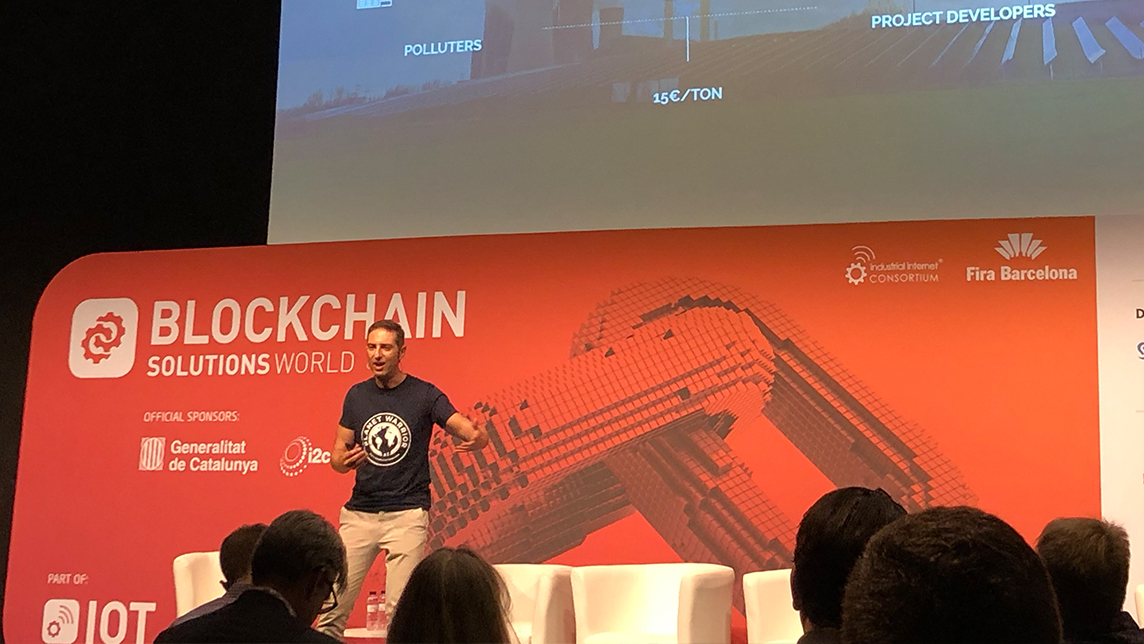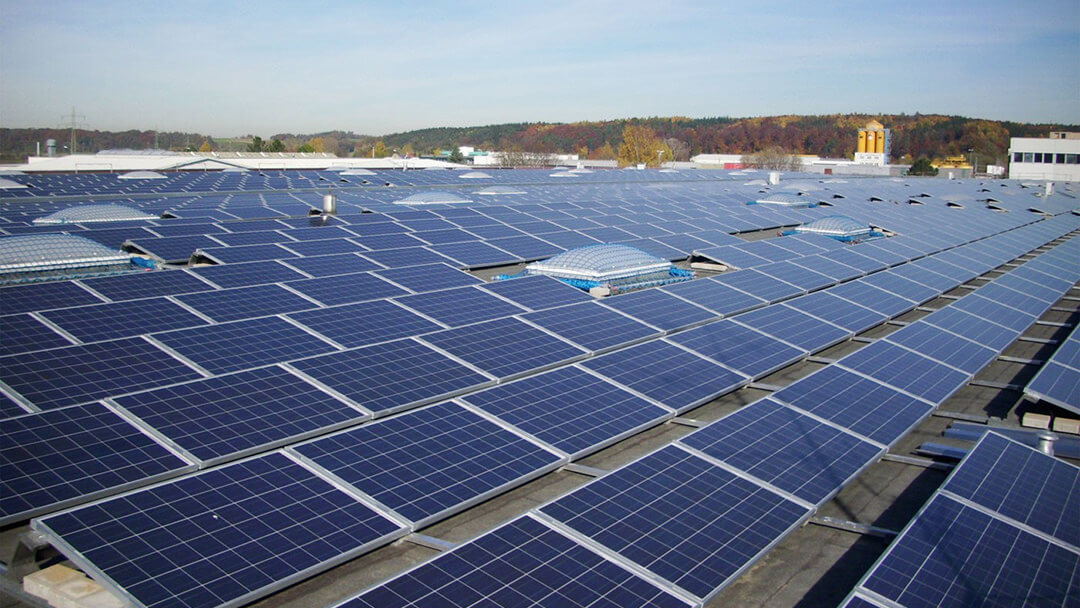ClimateTrade is a carbon trading platform that uses blockchain technology to tackle the lack of transparency in the market. Under the Kyoto Protocol, 193 signatory countries are bound by a emissions trading scheme whereby countries that pollute more could purchase carbon credits from those that pollute less. The tactic was expected to help offset greenhouse gas (GHG) emissions.
The Valencia-based startup co-founded by Francisco Benedito and Jose Lindo in 2018 is the first decentralized P2P carbon trading platform that meets the rules of the Carbon Trade Exchange (CTX). It was also recognized as one of the best solutions for the new Carbon Markets post-2020 by the United Nations. Today it counts some of Spain’s biggest companies, such as telco Telefónica, flag carrier Iberia and hospitality group Meliá Hotels, among its clients.
Most signatories fail to meet their emissions reduction targets. In addition, the system for selling carbon credits was found to be flawed. The money collected from emissions trading was slated to finance projects that would mitigate climate change. Tracking the funds proved difficult; the system was dominated by intermediary brokers that pocketed, on average, 30%–40% of the margins from trading carbon credits.
Benedito, CEO of ClimateTrade, has more than 15 years of experience in finance and was named one of Lattice80's Top 100 influencers in Fintech for Sustainable Development Goals. CompassList interviewed him at the 2019 IoT World Congress in Barcelona to discuss the role technology can play in fighting climate change.
This interview has been edited for length and clarity.
How has your career evolved and how did you end up in the tech ecosystem?
I come from a family that has always been involved in business. I started my first entrepreneurial project when I was 16 years old, a marketplace like Amazon to sell books. I had to sell the company because my dad wanted me to continue with my studies, and so I did.
I went to university to study law and then I did an MBA. After my studies, I was asked to join BBVA [Spain’s second largest bank]. I eventually became Director of BBVA in Menorca.
I also got to lead a project in blockchain and sustainability through BBVA Momentum, [the bank’s social entrepreneurship program]. One day, I met with one of my bosses, Pedro Ramon. Both our wives were expecting, and we started sharing our concerns about climate change and the future of our planet. That was when we started to work on the idea for ClimateTrade.
Can you explain what ClimateTrade is and how it tackles the UN's Sustainable Development Goals (SDGs)?
ClimateTrade is a decentralized platform for trading carbon credits. The ultimate goal is to make it a platform for financing all green initiatives.
ClimateTrade offers APIs to companies, with the option of customization. We allow them to purchase properly certified carbon credits. We act as facilitators, connecting people who sell carbon credits with those who want to purchase them. But we want to provide solutions not just for reducing carbon emissions, but for climate change as a whole, which includes cleaning the oceans and preventing deforestation, for example. [Editor’s note: The platform also gather projects that offset carbon credits and allows consumers and corporates to work together in green financing and sustainable investment]. When fighting climate change, you need to think big.
What has your progress been like so far?
Nine months ago, we launched the third version of the platform, and we are happy with the result. The platform is working well, and we have already helped companies like Telefónica reduce their carbon footprint.
We are running pilots with Iberia Group (IG) and Correos (Spanish Post). These pilots give customers the possibility to reduce their carbon footprint. For example, when a customer buys a plane ticket, we give him the possibility to offset the emissions of the flight. We started a pilot with IG for Iberia flights only. The objective is to expand the service to other airlines in the Group. i.e., Vueling, British Airways, Aer Lingus and Level.
Can you run me through your funding process?
We started with an initial coin offering, issuing ClimateCoins to raise the money needed to create ClimateTrade. We recently opened a seed round for €2m. We have already raised 50% of the capital from Successful Ventures, a Catalan fund. We are now looking to onboard international investors with technological expertise to support us, which is why we haven’t closed the round yet.
What are ClimateCoins, and how can they be used?
We issued ClimateCoins as utility tokens to purchase carbon credits as a pure payment method. We soon realized that, as with most cryptocurrencies, they lacked practical utility. So, until we have a clearer idea how to use ClimateCoins in a meaningful way, we are making all ClimateCoin holders shareholders within the next year. We might use ClimateCoins as a security token, but are still evaluating options.
How are you applying blockchain technology to project implementation and tracking?
In the carbon credit market, brokers were buying carbon credits from suppliers at a low price and then reselling the credits for three, even four times, the price. Keeping track of these transactions was difficult. That’s why we introduced blockchain to the game: it removes the intermediaries, while also providing traceability and easy certification of carbon credits and emissions offsets.
How does ClimateTrade source the projects it invests in? How do you select the best partners to ensure efficient project development?
We work with many project developers across the globe with outstanding reputations that can guarantee the highest standards in their work. When you buy carbon credits from one of our project developers, it means the project has already had an impact and that that impact has been certified by the United Nations or its partner entities. All carbon credits on our platform are certified.
Our first source of projects are the organizations we collaborate with. The projects we are working on now, for example, are developed within the R20 framework. We have also created a new fund specifically for women. We are supporting a project in Africa that installs kiosks with solar panels across African villages to provide energy and Internet. So far they have installed 50 kiosks, and we are currently financing installations in Kenya.
What has been your most successful project so far?
Save the Planet Now, a B2C platform that allows the public to contribute money directly to projects. People can donate online and offline by purchasing a Save the Planet Now card at one of our distributors. We just launched two weeks ago, and we are already present at Fnac, Carrefour, Mediamarkt, Worten and soon Correos. We are also looking to expand to supermarkets in Spain.
We aim to establish Save the Planet Now's presence at the national level first and then expand to the US and Asia. When we first started ClimateTrade, we wanted to build a tangible project, a project with a purpose. Through Save the Planet Now, we are helping people pursuing real change.
How does ClimateTrade use IoT?
A blockchain and its nodes validate information and transactions they receive from sources. We help companies in the solar and wind energy sectors transfer smart grid information to the blockchain to certify their credits and link their info to the ClimateTrade platform.
Would you consider funding tech startups that develop projects tackling climate change?
We’d need to grow more first. Technology is crucial to tackling climate change and so are tech startups.
In Spain, we launch many copycats – they replicate what is successful in the US, raise funds, then exit and that’s it. My idea is to find companies that are developing truly disruptive technologies to fight climate change and support them not only with funds, but also with business management advisory to help them scale. In my travels, I have seen thrilling technologies. One day, I met a guy who was using AI and satellite images to detect water under the soil and they were struggling to get funded…
Most of your projects are targeted at underdeveloped countries, but what about the rest of the world? Are you looking to include some projects in the European and local ecosystems?
We are working on that now, and we will surely have some by 2020.
What kind of growth are you looking to achieve in the near future?
ClimateTrade wants to be a global reference platform for carbon credits and emissions offsets. We want to incorporate not only our projects, we also want other companies to submit their projects.
Currently, we are working with a partner in Spain and Latin America that is helping us to expand to Chile, Peru and Colombia. We are closing agreements with companies in Colombia and starting new carbon credit projects in these countries. We are evaluating which markets should follow next…
This coming January, we will be applying for funding from Horizon2020 to help us in the second stage of our development.
With Save the Planet Now, we can go global easily, it’s just a matter of marketing to raise awareness. For ClimateTrade, we are looking to onboard at least 100 corporations and reach 5m transactions on the platform in 2020.











